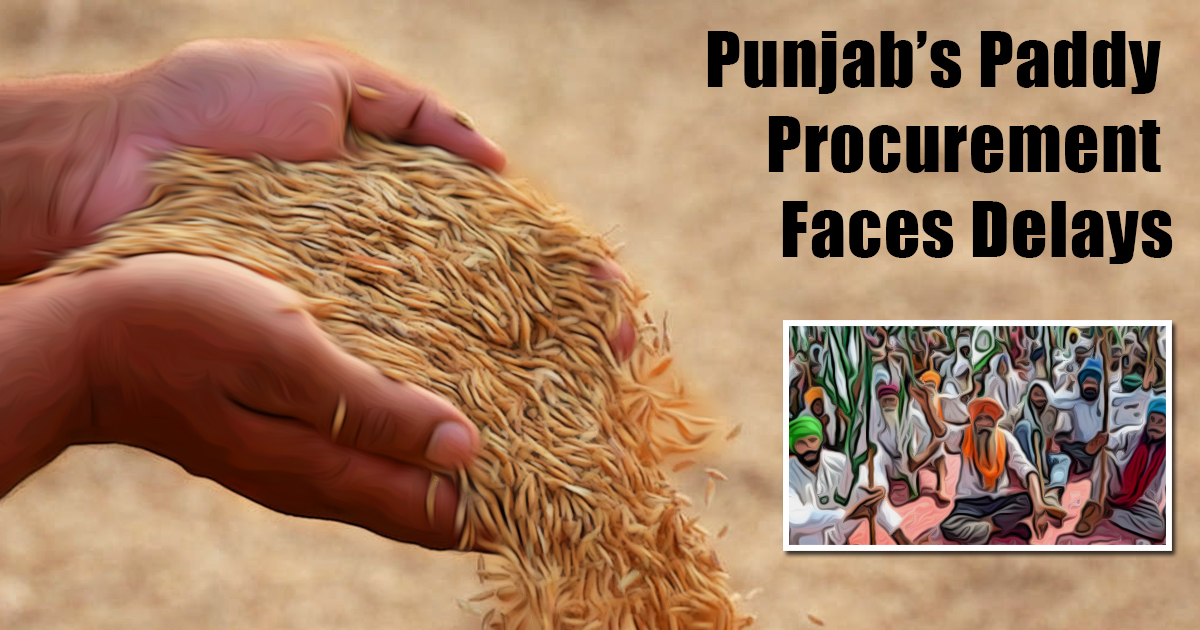
Punjab’s paddy procurement is currently facing significant delays due to surplus crop production, logistical bottlenecks, and private millers’ reluctance to participate fully. The following offers insights into the procurement process and factors contributing to the crisis:
Paddy Procurement Process in India
Each year, the central government, collaborating with state governments and the Food Corporation of India (FCI), estimates paddy procurement needs ahead of the kharif marketing season (October to September). The state and FCI procure paddy at the Minimum Support Price (MSP) for the central pool. This paddy is then milled, with rice transported by the FCI to government storage facilities for buffer stocks and distribution under the National Food Security Act (NFSA) and other schemes.
Contributing Factors to the Procurement Delays
- Storage Space Shortage: Private rice millers are hesitant to accept government paddy due to limited storage space in government godowns, worrying about year-long storage obligations.
- Hybrid Variety Issues: The market is flooded with private hybrid varieties, which yield a lower milling out-turn ratio (OTR) than FCI standards, creating procurement complications.
- Labour and Arhtiya Disputes: Arhtiyas (commission agents) are demanding increased compensation, and mandi laborers are pushing for higher wages, both of which have resulted in protests that further slow down the process.
Impact of Procurement Delays
- Delayed Harvesting: With only 22% of the paddy harvested, about 20% less than last year, farmers hesitate to harvest due to storage issues.
- Economic Strain: Prolonged field storage risks quality and weight loss, potentially reducing crop value and causing financial stress for farmers.
- Agricultural Cycle Disruption: Harvesting delays impact the timing for winter wheat sowing, potentially disturbing the agricultural cycle.
- Increased Stubble Burning: A shortened interval between paddy harvest and wheat sowing may lead to more stubble burning, increasing air pollution across North India.
- Potential Farmer Unrest: Prolonged procurement issues could lead to farmer unrest, posing a challenge to law and order in the state.
Strategies to Address the Procurement Crisis
- Temporary Storage: Utilizing Punjab’s 5,000+ rice mills for temporary storage while addressing concerns about hybrid OTR standards.
- Improved Coordination and Payments: Enhancing coordination among procurement agencies and ensuring timely payments to arhtiyas while addressing labor demands.
- Long-term Diversification: Promoting crop diversification in Punjab to reduce dependency on paddy and encourage sustainable crop rotations, potentially mitigating future procurement challenges.




